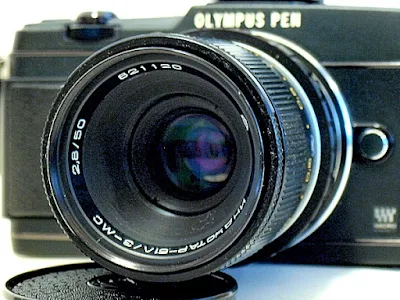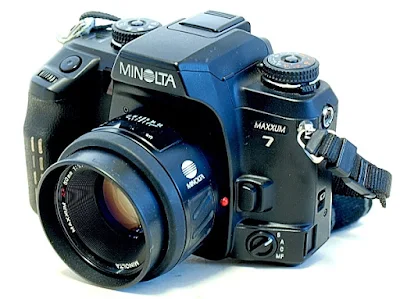Analog Diary: Film photography favorites, image making with a Minolta Maxxum 7, getting the feel of the best 35mm SLR film camera of all time.
<< Click on image for enlarged Lightbox display >>
While the top-of-the-line Minolta model was the Maxxum 9, the Maxxum 7 does have its ways by being smaller, lighter, and more compact, comes with features that are more appealing to the enthusiast, and has an LCD panel fitted to the film back.
Highlights of the Maxxum 7 include a shutter speed range from 30 seconds to 1/8000 second, plus Bulb, flash sync speed at 1/200th of a second, three metering modes, full PASM shooting modes, exposure compensation, AE lock, continuous shooting at up to four frames per second, unlimited multiple exposures, self-timer, both DX and user-selectable ISO control, and more.
Minolta Maxxum 7, Maxxum AF 50mm f/1.7
These were the initial shots when trying the camera out, or, as the title says, 'Getting The Feel'. As expected, the nominal functions of the Maxxum 7 were easy enough to operate, with the PASM dial, the shutter release, and the control dial for aperture control just within the grasp of your right hand.
Minolta Maxxum 7, Maxxum AF 50mm f/1.7
The camera was easy to get started with, autofocus is fast and accurate, metering seems equally flawless, and as these images show, it looks like the Maxxum AF 50mm f/1.7 RS is also equal to the task. Beyond this scratch on the surface, it looks like I still have a long way to go to really understand the full potential of the camera. Let's not wait too long for that.
Malaysia's Online Marketplace for Vintage Film and Digital Cameras, Lenses,
and Camera Accessories. Follow
ImagingPixel on
Facebook,
Pinterest, and
X.






























